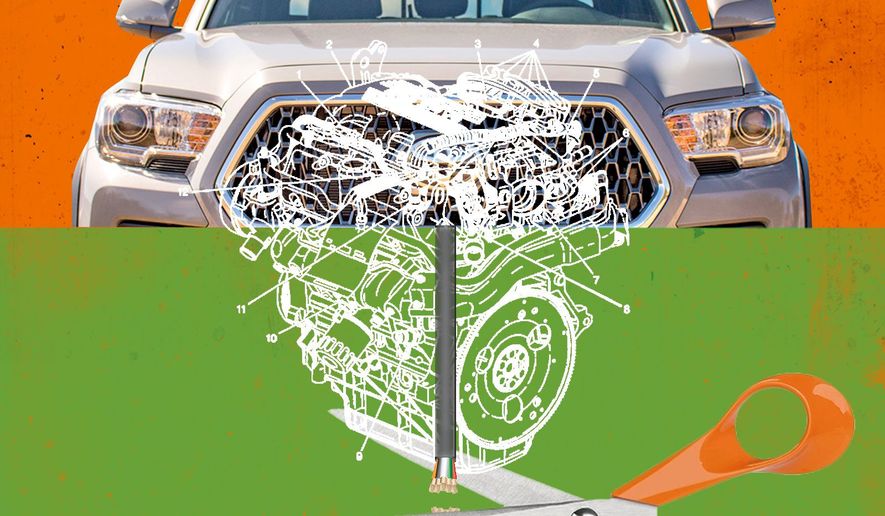OPINION:
A Japanese automotive and electric vehicle (EV) company is lobbying federally elected Republicans against a provision in pending legislation to benefit their company. They have played the political donations game in such a way that they have attempted to acquire support for policies that hurt American companies and workers while aiding its bottom line.
Toyota allows Japanese workers to unionize while denying their American plant workers the same right. Most agree improving the United States economy should be a priority of our government. Federally elected officials should not provide tax incentivizes to foreign companies operating in direct competition to U.S. companies.
Currently, Congress is considering a controversial piece of legislation, the Biden so-called “Build Back Better” plan, which contains a provision that not only extends a tax credit for EVs but also expands it to make sure the vehicles covered by the tax credit are produced by American workers and powered by American made batteries. The Biden spending plan has several serious problems, yet this one provision falls into the category of an America First provision deserving support from some Republicans. The new proposed tax credit would cap EV prices at $55,000 for a car and $74,000 for a truck. This cap prevents benefits from flowing to wealthy individuals who do not necessarily need a tax credit to buy an EV. If this legislation were to become law, there would be market motivation for American companies to ramp up EV production in the U.S. for the public.
American automotive companies employing American labor are both willing and able to mass-produce EVs. When the United States is arguably more divided than ever, this issue is one where “America First” Republicans and Pro-Union Democrats can work together to help American workers and corporations challenge foreign competitors.
Toyota was harshly condemned by the left for giving the most to 37 Republicans who opposed certifying the 2020 election results by groups like CREW. The resulting blowback motivated the company to flip flop and announce they would halt donations to those members. Toyota had been donating to these members because they opposed legislation that coincided with Toyota’s efforts to slow the development of a more robust American EV market. The hypocrisy in this donations pattern is obvious.
The company was slow to transition into the EV market because they decided long ago to embrace hydrogen vehicles over EVs. They developed the wildly popular Prius, then shifted to hydrogen-fueled vehicles in a move that proved to be a bad one. Consequently, the company has lobbied Congress to slow the American adoption of EVs. On July 27, 2021, Ars Technicia reported, “Toyota bet wrong on EVs, so now it’s lobbying to slow the transition” and “in tethering itself to hybrids and betting its future on hydrogen, Toyota now finds itself in an uncomfortable position,” because “governments around the world are moving to ban fossil-fuel vehicles of any kind, and they’re doing so far sooner than Toyota anticipated.” The company has been lobbying to slow emissions standards and fossil-fuel vehicle phaseouts. According to the report, they are not necessarily opposed to efforts to fight climate change, but rather they made a bad business calculation about the demand for EVs and are attempting to recoup.
U.S. tax policy should be tweaked to put American EV-producing companies back on track to win the EV-producing battle against foreign producers. As the time comes for Republicans and Democrats to campaign to keep their seats next fall, they should take a hard look at this proposed tax provision as something to promote. Members of both political parties will need votes from working-class voters. Passing this tax provision would be a good way to reach out to those voters.
Toyota could be used as a case study of companies pandering to elected officials. By withholding and extending monetary donations, Toyota is forcing politicians into taking positions not beneficial to the interest of American workers and corporations. Should this tax credit be extended and expanded, it could prove to be a tax change needed to supercharge a struggling automaking sector of the American economy.
• Mary Catherine McElhone is a conservative grassroots activist and chair of the Missouri Federation of Young Republicans.




Please read our comment policy before commenting.